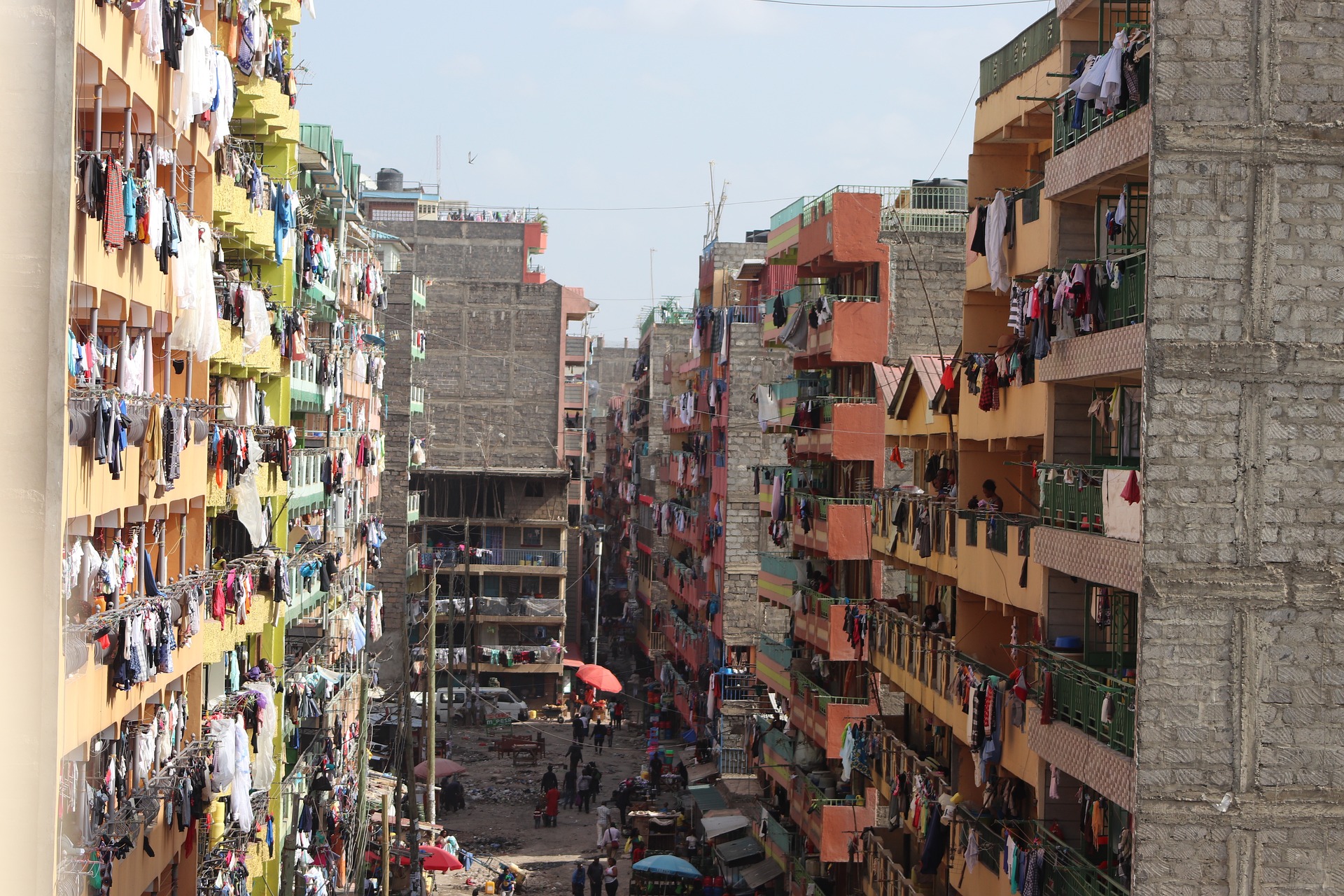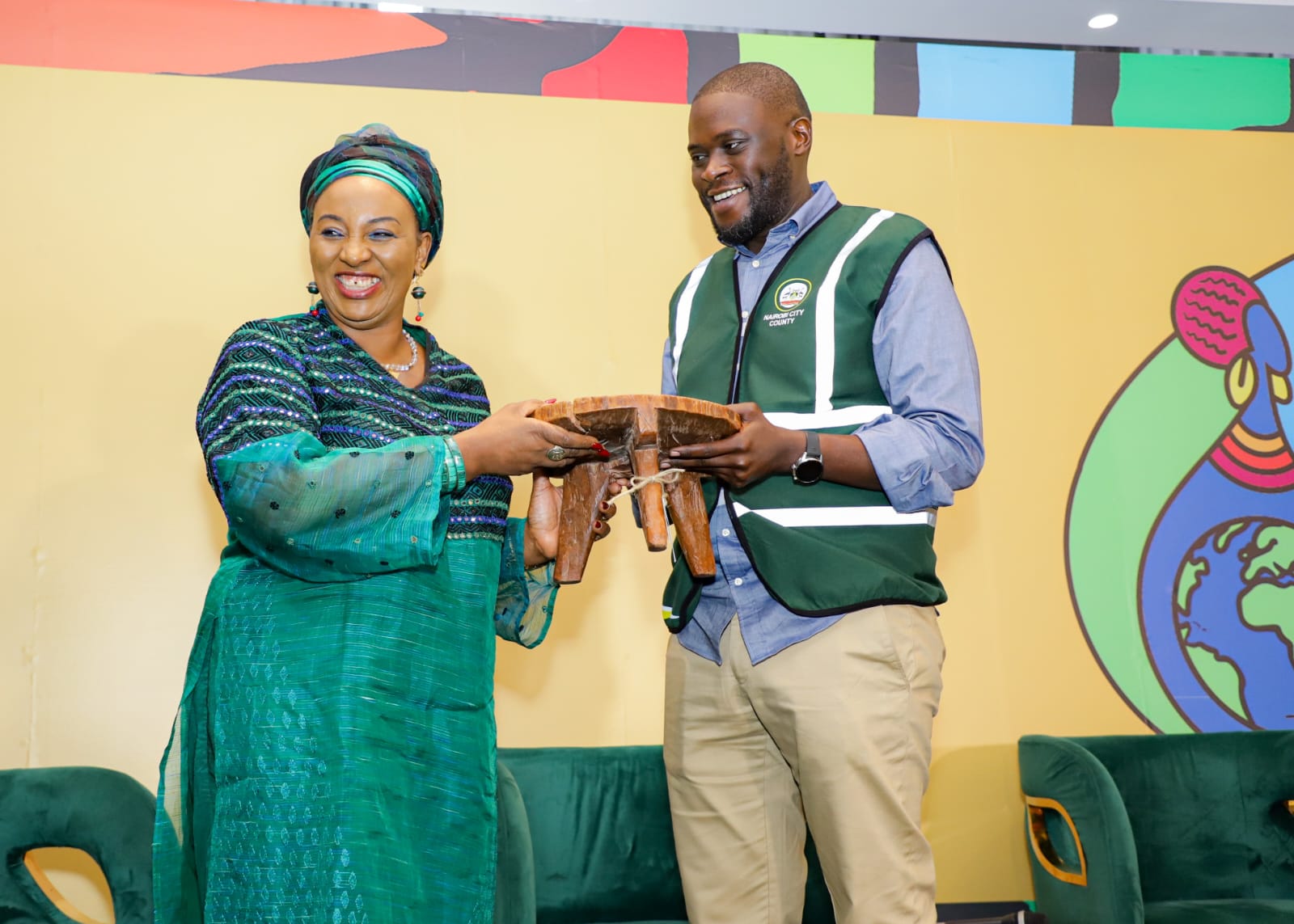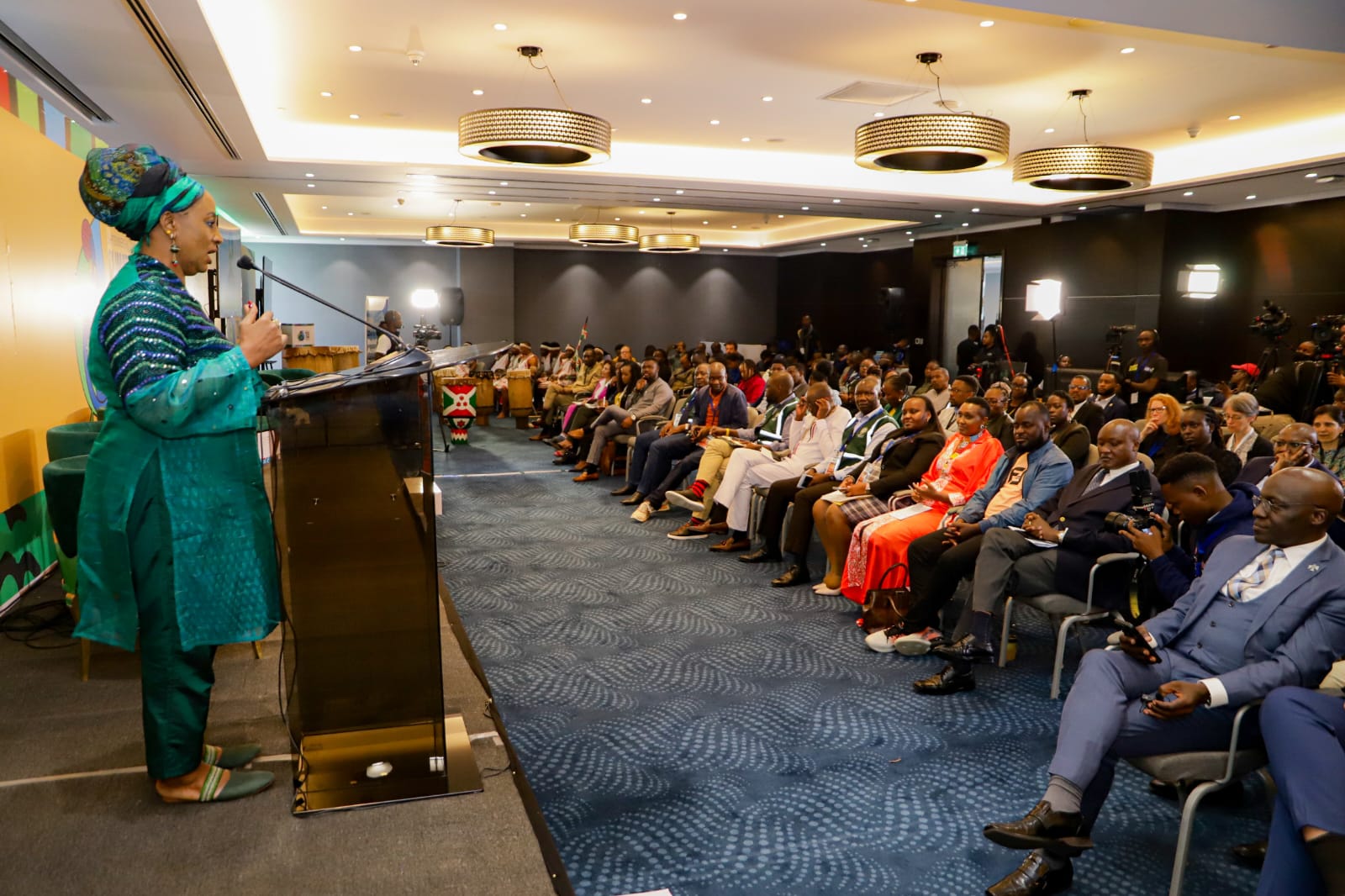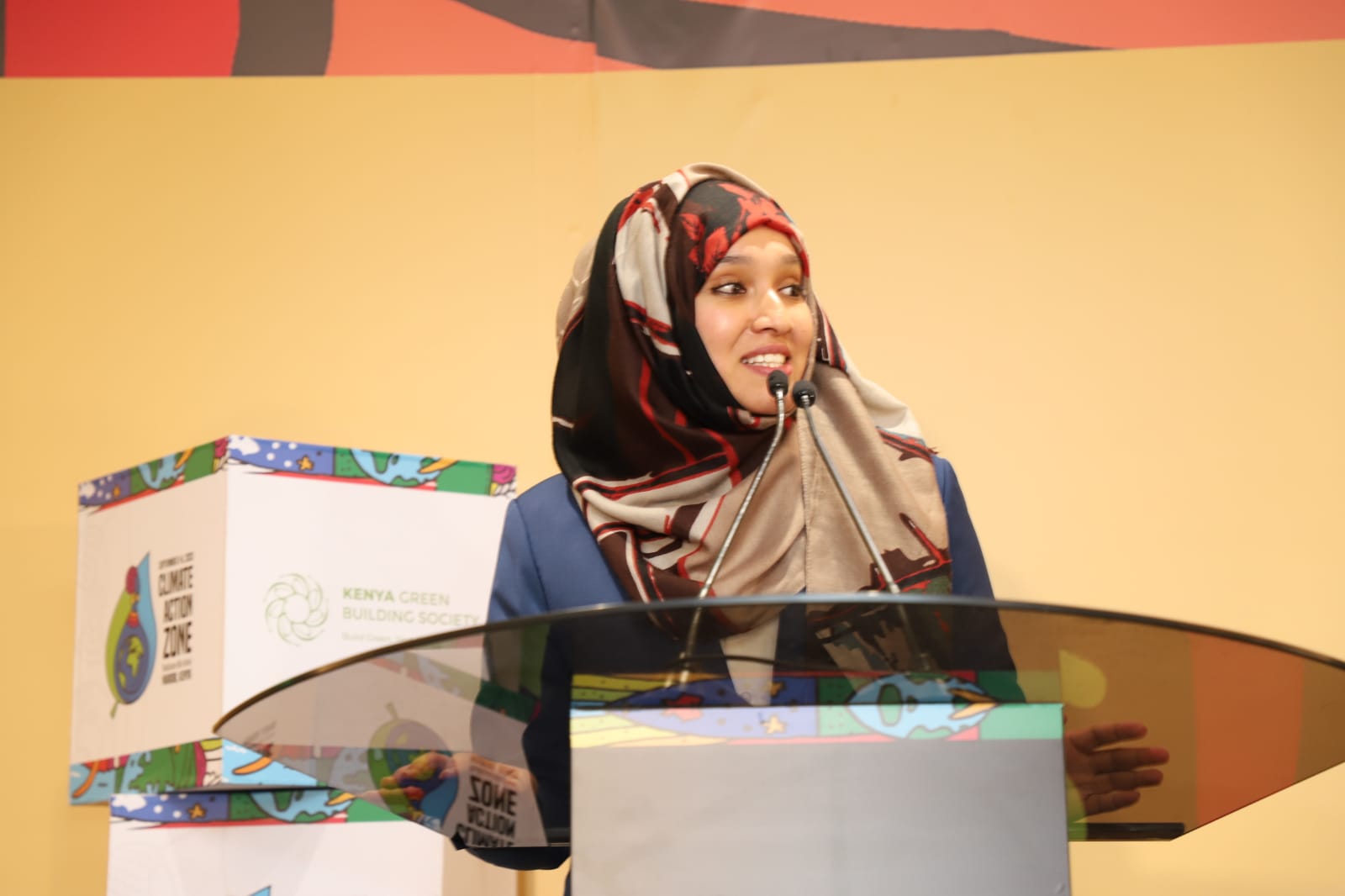If you ask anyone about Pipeline Estate in Kenya’s capital city, Nairobi, one description will always stand out: tall buildings crammed together, most of which have poor ventilation and no natural lighting.

And if you live there and it rains before you get home, chances are you will wade through muddy roads due to poor drainage.
“We need to use environmentally responsible materials to align our construction with our climate standards and discuss how we can improve Nairobi’s climate profile.”
The same situation is in many other estates in Nairobi and other African cities, with the drainage system even worse or nonexistent in informal settlements.
With the climate crisis getting more severe by the day, there are more calls for green buildings in Nairobi and other African cities to improve the quality of life and alleviate the effects of climate change.

“We need green construction not just to meet our climate goals, but to grow our economy, and so our resources,” said Nairobi Governor Johnson Sakaja at Africa Climate Summit 2023 Pre-Summit, which also marked the opening of Climate Action Zone in Nairobi on September 3, 2023.
The event was hosted by the Kenya Green Building Society and Alliance for Science under the theme, ‘Raising Climate, Carbon and Sustainable Finance for Buildings, Affordable Housing, Cities and Infrastructure in Africa.’
“If we truly intend to build and rehabilitate greener, more resilient buildings and cities, we must lead by example.”
“If we have young people building the sort of housing infrastructure that Nairobi needs to meet its climate commitments, then we’re also creating jobs, and we can expect more revenue,” Sakaja said and added that Nairobi has endured a high and rising rate of respiratory disease partly because of pollution and the quality of buildings.
“We need to use environmentally responsible materials, align our construction with our climate standards, and talk about how we can improve Nairobi’s climate profile,” he said.
Zero-carbon buildings of every type
Governor Sakaja added that the city government, in partnership with the Kenya Green Building Society, had completed a preliminary International Finance Corporation Excellence in Design for Greater Efficiencies (IFC-EDGE) building assessment of the governor’s office to make it the first IFC EDGE green government building in Africa, if not the world.
“If we truly intend to build and rehabilitate greener, more resilient buildings and cities, we need to lead by example,” said the governor.
An innovation of IFC, EDGE makes it easy to design and certify resource-efficient and zero-carbon buildings of every type everywhere.

Alliance for Science Executive Director Dr Sheila Ochugboju said Nairobi is 90 percent buildings, presenting an opportunity to make them carbon sinks as a means to climate action.
“Focusing on green buildings will also offer youth jobs and contribute to just transition to renewable energy,” said Dr Ochugboju.
“Without the supply of adequate, affordable housing and skill, housing backlogs mean that Africans live a life of poverty, indignity and extreme discomfort.”
The objective of the ACS 2023 Pre-Summit is to mobilize climate, carbon, and sustainable finance and partnerships for the built environment, where the focus is not only on building sustainable cities but also on rehabilitating and regenerating Africa’s fastest-growing cities.
The focus on the building industry comes at a time when the quality of many constructions in Nairobi and their ability to withstand harsh weather conditions have been in doubt.

Nasra Nanda, the Kenya Green Building Society chief executive, said African cities are victims of the proliferation of informal settlements, slum areas, and overcrowding.
“In Africa, we see among the highest urbanization populations and household growth rates globally, in some cities, as high as six percent per annum,” said Nanda.
“Without the supply of adequate, affordable housing and skill, housing backlogs mean that Africans live a life of poverty, indignity and extreme discomfort.”
Increase their investor base
To enable them to raise finances for green construction, developers need to take advantage of green bonds, advised Sheila Moraa, the Director of Development Management at Acorn Investment Management Limited.
Acorn Holdings successfully raised Kenya’s first green bond worth 40 million dollars in 2019, and Moraa said they have guarantors who guarantee the bonds to 50 percent to increase their investor base.
“We want the green bonds to be cheap, but they are not. So, it is still a journey we are trying to work through. We raised as a fixed instrument at 12.25 percent. For us, the cost is high, but the benefit far outweighs it, and that is the catch,” said Moraa.
“Carbon credit must not be your primary source of revenue. It is a behavior revenue meant to change your behavior toward climate-smart investments.”
According to the Nairobi Securities Exchange (NSE), green bonds are fixed-income instruments whose proceeds are earmarked exclusively for projects with environmental benefits, mostly related to climate change mitigation or adaptation but also to natural resources depletion, loss of biodiversity, and air, water or soil pollution.
Architectural Association of Kenya (AAK) President Florence Nyole said it is important that architects be involved early in planning and policymaking on construction matters to ensure alignment with principles that ensure safety, sustainable energy consumption, and the ability to withstand harsh weather conditions.
More African countries and developers need to invest in carbon credits because, so far, 75 percent of carbon projects in the continent are in Kenya.
“I believe in leaving no one behind. Professionals need to be allowed into the room when policies are made because these policies affect issues on the ground for the green building agenda,” said Nyole.
Invest in carbon credits
Dr Olufunso Somorin, the Regional Principal Officer at the African Development Bank, called for integrating construction project ideas with carbon credits to earn extra revenue as a motivation for going green.
“Carbon credit must not be your primary source of revenue. It is a behavior revenue meant to change your behavior toward climate-smart investments,” said Dr Somorin.
He said more African countries and developers need to invest in carbon credits because, so far, 75 percent of carbon projects in the continent are in Kenya.
“We understand that we need to work together to make the green transformation of Nairobi city possible.”
As the Africa Climate Summit begins and the talks on climate resilience, green energy, and green construction are expected to continue, dwellers of informal settlements in Nairobi and other African cities hope to live in healthier houses and environments in the near future.
Governor Sakaja promised that his administration would provide incentives for green buildings because “we understand that we need to work together with you to make possible the green transformation of our city.”
_______________________________________________________________________________________________
Godfrey Ombogo is an editorial consultant, consulting science editor, and writer for Media for Environment, Science, Health and Agriculture (MESHA) in Kenya. He has been a reporter, sub-editor, and quality assurance editor at Daily Nation, The Star, and The Standard, respectively. He has also written for Talk Africa, an online multimedia content platform.
